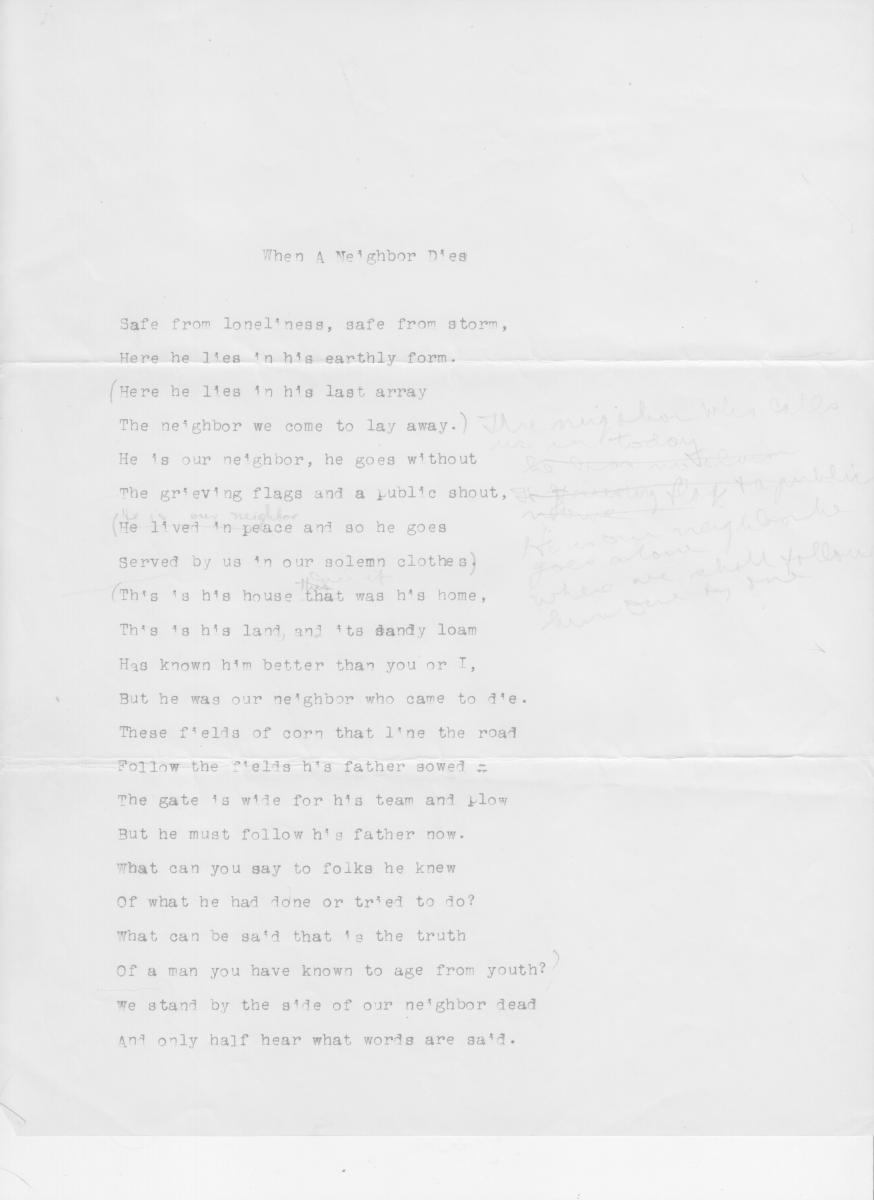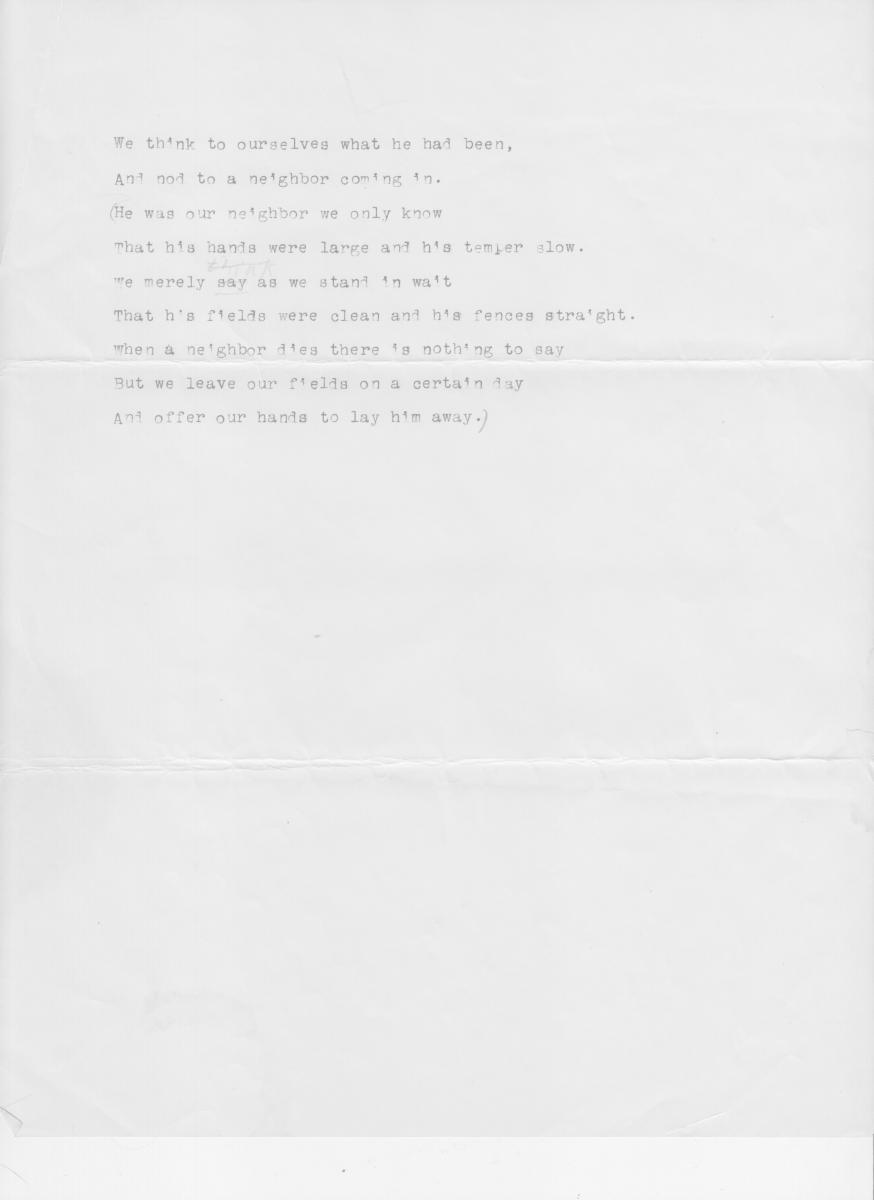When a Neighbor Dies
Safe from loneliness, safe from storm,
Here he lies in his earthly form.
Here he lies in his last array
The neighbor who calls us in today.
He is our neighbor, he goes without
The grieving flags and the public’s shout;
He is our neighbor and so he goes
Served by us in our solemn clothes.
This is his house, it was his home,
This is his land and its sandy loam
Has known him better than you or I
But he was our neighbor who came to die.
These fields of corn that line the road
Follow the fields his father sowed—
The gate is wide for his team and plow
But he must follow his father now.
What can you say to folks he knew
Of what he had done or tried to do?
What can you say that is the truth
Of a man you have known to age from youth?
We stand by the side of our neighbor dead
And only half hear what words are said.
We try to remember what he had been
And nod to a neighbor coming in.
He was our neighbor, we only know
That his hands were large and his temper slow.
We simply say as we stand and wait
That his fields were clean and his fences straight.
When a neighbor dies there is nothing to say
But we leave our field on a certain day
And offer our hands to lay him away.
Publication Details
American Prefaces 2 (Oct. 1936) 9.
Manuscript


Permission to reproduce work from the James Hearst Papers has been granted by the Special Collections Department of the University of Iowa Libraries.

Notes and Commentary